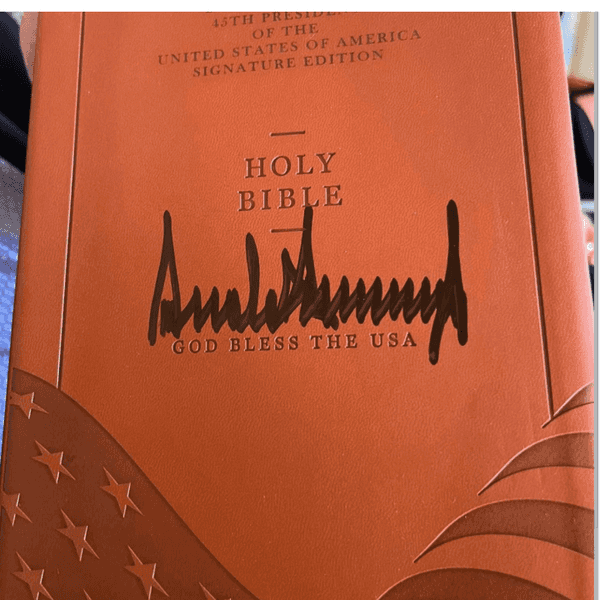
By Arit John, Bloomberg News (TNS)
WASHINGTON — When the Democratic National Committee announced in May that it would sanction six primary debates in 2016, and planned to punish candidates who went to unsanctioned events, the party said the schedule was “consistent with the precedent set by the DNC during the 2004 and 2008 cycles.”
In both of those cycles the DNC also only sanctioned six debates. But the 2004 and 2008 elections were also filled with dozens of unsanctioned ones that started at least six months earlier than the DNC plans to start its debate season this year, on Oct. 13.
That frenzy is what the committee is trying to prevent from happening this year, and it’s what lower-ranking candidates, who would benefit from more chances to appear in nationally televised debates on the same stage as front-runner Hillary Clinton, are rebelling against. Sen. Bernie Sanders said he’s “disappointed” with the schedule, while former Maryland Gov. Martin O’Malley called it “unprecedented” and “outrageous.”
Maybe the solution for lower-polling candidates isn’t to push the DNC to sanction more debates, says Kathleen Jamieson, a University of Pennsylvania professor of communications who has studied and written about presidential debates and political rhetoric. “O’Malley’s attacking the wrong villain,” Jamieson said. “If anyone wants to stand up and sponsor a debate and the candidates want to go to it, you’ll have a debate that the DNC hasn’t sanctioned.”
For example, if a Spanish-language television network said it was going to host two debates, one for Democrats and one for Republicans, Jamieson says it is likely the candidates would ignore the rules set by their committees. “They would accept and go, regardless of whether the RNC and DNC said yes or no, because they want to reach the Hispanic vote,” she said.
O’Malley appears to be hinting he would do just that. In a memo released Tuesday, O’Malley legal counsel Joe Sandler challenged the DNC’s exclusion rule, which says that if a candidate attends an unsanctioned debate, they will be barred from future DNC primary debates. The rule is “legally unenforceable,” Sandler said, and if candidates attended an unsanctioned debate, “it is highly unlikely that any of those sponsors of the sanctioned debates would ultimately be willing to enforce that ‘exclusivity’ requirement.”
Alan Schroeder, a journalism professor at Northeastern University and the author of Presidential Debates: 50 Years of High-Risk TV, agrees, noting that on the Republican side, it has been the debate hosts, not the Republican National Committee, that set the rules for the debates. “The DNC may threaten to keep somebody out of a future debate, but it isn’t their invitation,” he said.
Of course, the major appeal of any debate — for the trailing candidates and the hypothetical media entity that would host the debate — is a chance to the challengers share the stage (and possibly upstage) Clinton. But the front-runner made it clear this week, however, that she’ll only attend events sanctioned by the DNC.
In response to O’Malley’s memo, the DNC has said that it worked with the debate hosts to set the rules, including the exclusivity rule. “We agreed with the networks on a standardized criteria across all debates,” DNC spokesperson Miryam Lipper told MSNBC.
As for whether there’s a need for more debates, another DNC spokesperson, Holly Shulman, said last week that six debates offered “plenty” of opportunity:
“We’re thrilled to hear that Governor O’Malley is eager to participate in our debates. We believe that six debates will give plenty of opportunity for the candidates to be seen side- by-side. I’m sure there will be lots of other forums for the candidates to make their case to voters, and that they will make the most out of every opportunity.”
Schroeder says Democratic groups could also organize an event similar to the Voters First Forum — an event for Republican candidates in Manchester, N.H., on Aug. 3 that several media organizations staged in response to the criteria for the first official debate, which placed heavy emphasis on national poll standings.
“It wasn’t a debate and they called it a forum specifically to avoid pissing off the RNC, but it got all the candidates on the stage together at the same time,” Schroeder said. “So it’s conceivable that the Democrats could come up with an equivalent to that.”
Attending a forum wouldn’t break the DNC’s sanctioned debates rule, and in fact the party has invited all of the candidates to speak at its summer meeting in Minneapolis at the end of the month. Asked whether O’Malley would attend such a forum, spokeswoman Haley Morris said the campaign is focused on debates. The Sanders campaign did not respond to a request for comment. Why six?
Depending on who you ask, the DNC’s exclusivity requirement is either an effort to prevent the debate season from overwhelming candidates and voters, or an attempt to protect Clinton.
When debates are too frequent “it begins to overwhelm the processes, becomes all consuming for campaigns and becomes less impactful for voters,” DNC communications director Mo Elleithee told The Guardian in May.
During the 2008 cycle, not all the candidates were pleased with the dozen-plus debates that happened before the Iowa caucuses. As Roger Simon wrote in Politico in February 2007, Barack Obama and Clinton considered declining some of the many debate and forum invitations they were receiving. Major candidates were unhappy with the 2004 schedule, too. “The debates not only screwed up their schedules, but took a ton of prep time that could have been better spent going out and actually meeting voters,” Simon wrote.
Lower-polling candidates see different motives. The DNC is “stacking the deck in favor of a chosen candidate,” said O’Malley senior strategist Bill Hyers in an e-mail to supporters last week.
“It seems, and I emphasize the words seems, but it seems to be a procedure in which the objective is to protect the front- runner,” Schroeder said. “I think that O’Malley and Bernie Sanders and the others have every reason to be upset about this exclusivity rule.”
Photo: It doesn’t behoove Maryland Gov. Martin O’Malley to stick to the rules. (Canada 2020/Flickr)








